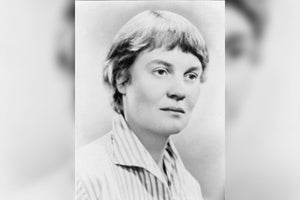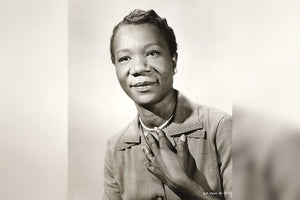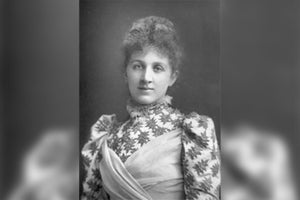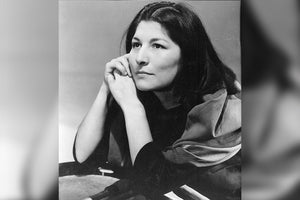Birthday: December 9, 1906
Who was Grace Hopper?
She was a brilliant mathematician and computer scientist who joined the United States Navy and became a rear admiral. She pioneered computer technology and was an accomplished computer programmer.
Five Facts about Grace Hopper:
- She received a master’s degree (1930) and a Ph.D. (1934) in mathematics from Yale.
- She believed that a programming language based on English was possible. Her linker converted English terms into machine code understood by computers.
- She helped develop a compiler that was a precursor to the widely used COBOL (COmmon Business-Oriented Language).
- When she retired as a rear admiral at age 79, Hopper was the oldest serving officer in the U.S. Armed Forces.
- On November 22, 2016, she was posthumously awarded the Presidential Medal of Freedom by President Barack Obama.
Inspirational Quotes from Grace Hopper
A ship in port is safe, but that's not what ships are built for.
It is often easier to ask for forgiveness than to ask for permission.
You don't manage people; you manage things. You lead people.
If it's a good idea, go ahead and do it. It's much easier to apologize than it is to get permission.
Leadership is a two-way street, loyalty up and loyalty down. Respect for one's superiors; care for one's crew.
I’ve come to feel that there is no use doing anything unless you can communicate.
Grace’s Biography
Early Life
Grace was born in New York City. She was the oldest of three children who were born to Walter Fletcher Murray and Mary Campbell Van Horne. Her great-grandfather, Alexander Wilson Russell was an admiral in the US Navy and fought in the Battle of Mobile Bay during the Civil War.
Grace was very curious as a child! When she was seven, she decided to determine how an alarm clock worked and dismantled seven alarm clocks before her mother figured out what she was doing and restricted her to one clock. As a teenager, she attended a preparatory school called Hartridge School located in Plainfield, New Jersey.
Marriage
She was married to a New York University professor named Vincent Foster Hopper for 15 years. She did not marry again but chose to retain his last name. She did not have any children.
Turning Point
Grace came of age during a time of unusual opportunity for women. A relatively high number of women were receiving doctorates in the 1920s and 1930s — numbers that would not be matched again until the 1980s. World War II also created many opportunities for women to enter the workforce in greater numbers.
Nevertheless, Grace’s success in such a male-dominated field, as well as in male-dominated organizations, including the U.S. Navy, was very exceptional.
After Pearl Harbor was bombed and the United States entered into World War II, Grace decided to join the war effort. She was initially rejected by the Navy because of her age and small size, but she persisted and finally was able to join the U.S. Naval Reserve (Women’s Reserve) in December 1943.
Mission and Work
Grace truly believed that computers would someday become widely used and she set out to help to make them more user-friendly.
After World War II, Grace remained with the Navy as a reserve officer and became a research fellow in engineering sciences and applied physics at Harvard where she helped develop the Mark II and Mark III computers. One evening in 1945 while working on the Mark II, Grace and her colleagues encountered a problem. They took the machine apart and found a large moth. Although the term “bug” had been used by engineers since the 19th century to describe a mechanical malfunction, Grace was the first to refer to a computer problem as a “bug” and to speak of “debugging” a computer.
Wanting to continue to work with computers, Hopper eventually moved into the private sector in 1949, first with the Eckert-Mauchly Computer Corporation, then with Remington Rand, where she oversaw programming for the UNIVAC computer. In 1952, her team created the first compiler for computer languages (a compiler renders worded instructions into code that can be read by computers). This compiler was a precursor for the Common Business Oriented Language, or COBOL, a widely adapted language that would be used around the world. Though she did not invent COBOL, Hopper encouraged its adaptation.
Death and Legacy
Grace became a well-recognized figure toward the end of her life. She was the recipient of more than 40 honorary degrees, and many scholarships, professorships, awards, and conferences are named in her honor.
On New Year's Day 1992, at the age of 85, Grace died in her sleep of natural causes at her home in Arlington, Virginia. She was buried with full military honors in Arlington National Cemetery.
![]() Fast Shipping
Fast Shipping![]() Subscribe to our Newsletter
Subscribe to our Newsletter![]() 🌟 New Global Competition 🌟
🌟 New Global Competition 🌟
















